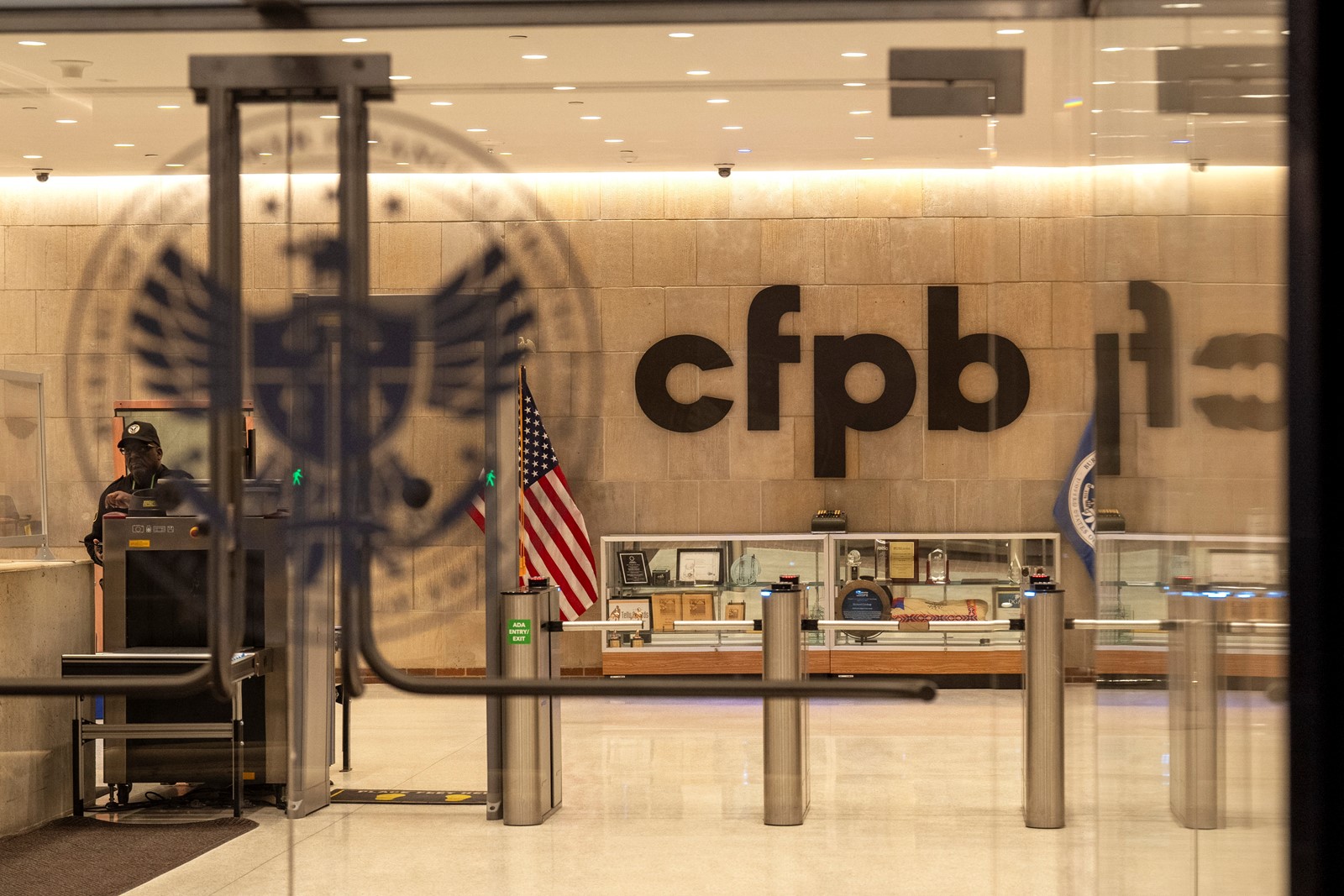
NEW YORK >> The lights are on at the Consumer Financial Protection Bureau across the street from the White House, and employees still get paid. But, in practice, the bureau has been mostly inoperable for nearly six months. CFPB employees say they essentially spend the workday sitting on their hands, forbidden from doing any work by directive from the White House.
The bureau is supposed to be helping oversee the nation’s banks and financial services companies and taking enforcement action in case of wrongdoing. Instead, the situation is Kafkaesque: the main function seems to be undoing the rulemaking and law enforcement work done under previous administrations, including in President Donald Trump’s first term.
American consumers can no longer look to the bureau for help when it comes to their checking account, credit card, payday loan, auto loan or mortgage. Trump has neutered the watchdog, employees say, the culmination of a yearslong effort by Republicans who felt the agency often went overboard in its efforts.
One current employee, who spoke on condition of anonymity because the directive forbids staffers from speaking publicly about their jobs, said outsiders would be amazed at how little work is being done. Employees are reluctant even to talk to one another, out of fear that a conversation between two employees would be considered a violation of the directive.
Another employee described the drastic shift in mission, from trying to protect consumers to doing nothing, as “quite demoralizing.”
To gain an understanding of what is happening inside the CFPB, The Associated Press spoke with 10 current and former employees, as well as bankers and policymakers who used to interact with the bureau nearly every day but now say their emails and voicemails go into a black hole. The agency’s press office doesn’t respond to emails.
Bureau rank-and-file employees and former CFPB officials say they expected the bureau to keep doing its work under “Trump 2.0,” although likely in a more restrained fashion. In Trump’s first term, his then-director Kathy Kraninger took a lighter approach to supervision and enforcement, but still some of the biggest financial settlements in the bureau’s history took place during that time.
President Joe Biden’s choice to run the bureau, Rohit Chopra, took an expansive view of its authority, targeting profitable practices by banks such as overdraft and credit card late fees, as well as investigating companies over credit reporting and medical debt.
He even turned a spotlight on big tech companies that have increasingly made inroads into financial services. The CFPB ordered Apple to pay $89 million in fines and penalties for problems related to the Apple Card. Paypal’s Venmo is used by millions to split a bill, and the bureau found that payment and funds transfer apps such as PayPal and Venmo should fall under the federal consumer protection laws, just like banks.
Banks and the financial services industry felt Chopra acted too aggressively, particularly with a proposal to cut overdraft fees to $5 from the industry average of $27 to $35. The bureau estimated the move would save consumers roughly $5 billion a year. The proposal was overturned by Congress with Trump’s backing earlier this year.
“We are thankful that the Trump Administration recognized the harm to consumers, the market, and the overall economy posed by the CFPB’s overreaches under its prior leadership,” said Lindsey Johnson, president of the Consumer Bankers Association.
Under Trump 2.0, the bureau became a main target of the Department of Government Efficiency, then run by Elon Musk, who posted on X that the CFPB should “RIP” shortly after DOGE employees became embedded at the agency. Through the bureau’s acting chief, Russell Vought, the White House issued a directive that CFPB employees should “not perform any work tasks. “
The administration then tried to lay off roughly 90% of the bureau’s staff, or roughly 1,500 employees. Courts have blocked those layoffs, but there is a feeling inside the bureau that the court rulings are only a temporary reprieve.
Sensing blood in the water, companies that committed wrongdoing, or had open investigations, have lobbied the bureau and the White House for their punishments to be rescinded. Employees at the bureau say the only time their workdays get remotely busy these days is when the White House instructs them to begin rescinding one of these punishments. It often involves “reverse-engineering” reasons why the bureau, which investigated and found that these companies did harm to consumers, now no longer believes that happened.
In 2024, Navy Federal Credit Union agreed to settle claims that it illegally charged overdraft fees to its members. Among the customers at the $180 billion financial institution are Navy service men and women, and veterans. Vought canceled the settlement last month, and Navy Federal will no longer have to pay back $80 million in fees. A spokesman for Navy Federal declined to comment on whether the credit union planned to return those funds to its members, as it originally said it would.
In 2023, the auto financing arm of Toyota was found to be illegally bundling products onto car buyers’ auto loans, refusing to cancel those products and doing harm to customers’ credit scores. Toyota was ordered to refund $48 million to harmed customers. That settlement was rescinded in mid-May. A spokesman for Toyota declined to say whether customers would be reimbursed.
“Companies are lining up to get out of repaying harmed customers,” said Eric Halperin, former enforcement director at the bureau, who resigned earlier this year.


 PREVIOUS ARTICLE
PREVIOUS ARTICLE
